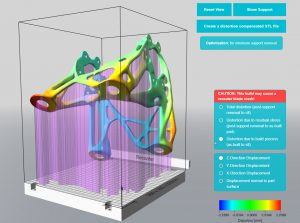
Siemens buys additive manufacturing software developer Atlas 3D
Canadian Plastics
Plastics Processes SoftwareU.S.-based Atlas helps designers define optimal part orientations for "right first time" 3D printing.
Industrial manufacturing company Siemens has signed an agreement to acquire Atlas 3D Inc., a Plymouth, Indiana-based developer of Sunta software that works with direct metal laser sintering (DMLS) printers to automatically provide design engineers with the optimal print orientation and requisite support structures for additive parts in near real-time.
The financial terms of the transaction have not been disclosed.
Atlas will join Siemens Digital Industries Software, where its solutions will expand additive manufacturing capabilities in the Xcelerator portfolio of software.

With Atlas3D, designers and manufacturing engineers can quickly gain insights into the optimal part build orientation in order to minimize supports, distortion, effort to remove supports, part material, and printing time. Photo Credit: Siemens
Atlas’ Sunata software uses thermal distortion analysis to provide a simple, automated way to optimize part build orientation and generate support structures. This approach allows the designer – rather than the analyst – to perform these simulations, thereby reducing the downstream analysis that needs to be conducted via Simcenter software to achieve a part that meets design requirements.
Siemens plans to make the Atlas solution available through its online Additive Manufacturing Network.
“We welcome Atlas to the Siemens community as the newest member of our additive manufacturing team. Our solutions industrialize additive manufacturing for large enterprises, 3D printing service bureaus, design firms and CAD designers,” said Zvi Feuer, senior vice president, manufacturing engineering software of Siemens Digital Industries Software. “The cloud-based Sunata software makes it easy for designers to determine the optimal way to 3D print parts for high quality and repeatability. The combination of Sunata with the robust CAE additive manufacturing tools in Simcenter enables a ‘right first time’ approach for industrial 3D printing.”
Siemens Digital Industries has its global headquarters in Nuremberg, Germany, and has around 76,000 employees internationally.
